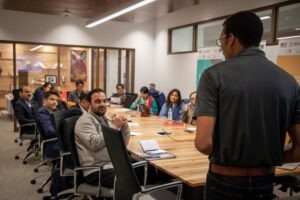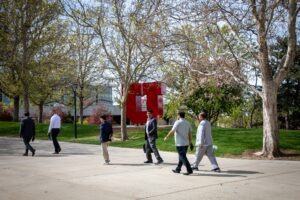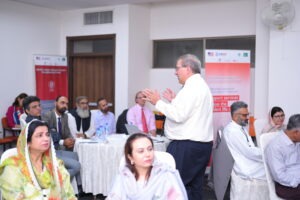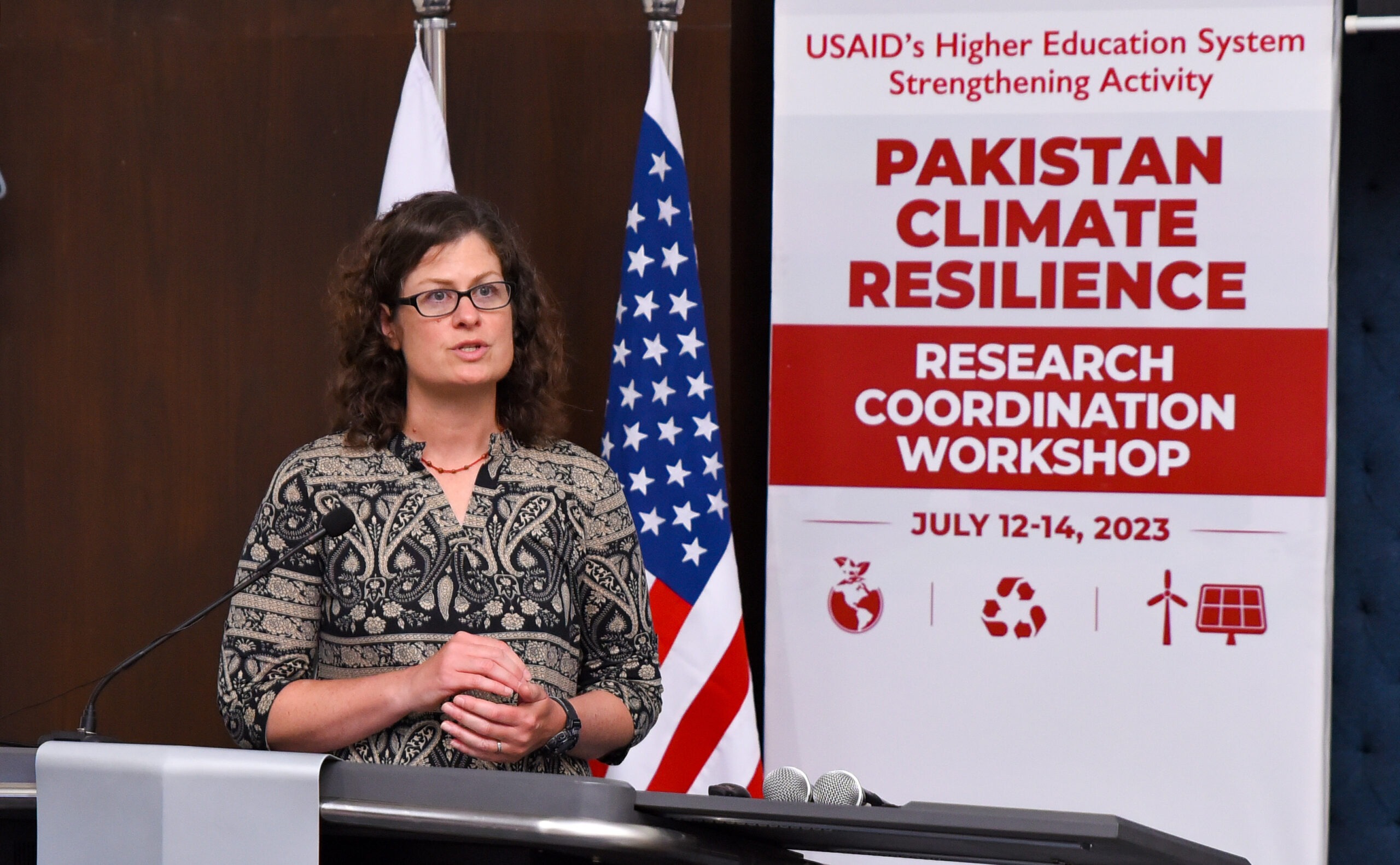 University of Utah faculty and staff are making an impact on Pakistan’s educational ecosystem through the USAID’s Higher Education System Strengthening Activity (HESSA). Now in its third year, the project’s trainings, exchanges, and networking are proving to be successful.
University of Utah faculty and staff are making an impact on Pakistan’s educational ecosystem through the USAID’s Higher Education System Strengthening Activity (HESSA). Now in its third year, the project’s trainings, exchanges, and networking are proving to be successful.
“It’s so rewarding to witness the impact of our collective efforts. We have a great team of people, including our participating faculty from the U, our colleagues at the University of Alabama and the Institute for International Education, and our dedicated partner institutions in Pakistan. Everyone is dedicated to really raising the bar for higher ed in Pakistan, and how those improvements can increase graduate preparedness. We are starting to see that become reality,” said Cheri Daily, Project Manager for HESSA and Executive Director for Global Programs and Marketing & Communications at the U.
HESSA aims to bridge the gap between industry and academia and enhance the capacity of Pakistani universities to deliver graduates well-prepared for the demands of the modern workplace, with the overall goal of increasing workforce employability.
The U is HESSA’s lead implementing institution and project partners include the University of Alabama and the Institute for International Education (IIE). The trio of American institutions is working closely with the Pakistan Higher Education Commission and Pakistani colleges and universities to deliver trainings, host study tours, instigate networking, advance research and innovation, and spearhead equity initiatives.
In addition to sending U personnel to Pakistan to deliver workshops, and hosting virtual programming, the U has also welcomed program participants to both its Salt Lake City campus and U Asia Campus in 2023.
From training university administrators in management best practices, to empowering women to step into leadership roles, to creating career development opportunities for students, HESSA is inspiring change in its 16 partner institutions.
“In the last year, we have seen our [Pakistani] institutions grow exponentially,” said Dr. Randy McCrillis, Executive Director for the U Asia Campus and HESSA Student Services Component Lead.
While specific improvements vary between institutions, common themes include the enhancement of mental health services, the digitization of application and financial aid procedures, the launch of alumni engagement programs, and the development of strategic plans.
 “We realized that we needed to set up a center where the students could come and speak about their individual concerns. So last year we set up an office of student affairs and within that office we have set up a wellness center… We were also able to identify the thematic areas where we can conduct training workshops for each other and strengthen the financial aid process. The other thing that [HESSA] made us realize is our awareness on how to facilitate students with disabilities. This is an area that is not really talked about in the higher education sector of Pakistan,” said Dr. Khadija Bari, an Associate Professor who also leads the Financial Aid Office at the Institute of Business Administration (IBA) in Karachi, when asked about how the support from HESSA has shaped changes at her institution.
“We realized that we needed to set up a center where the students could come and speak about their individual concerns. So last year we set up an office of student affairs and within that office we have set up a wellness center… We were also able to identify the thematic areas where we can conduct training workshops for each other and strengthen the financial aid process. The other thing that [HESSA] made us realize is our awareness on how to facilitate students with disabilities. This is an area that is not really talked about in the higher education sector of Pakistan,” said Dr. Khadija Bari, an Associate Professor who also leads the Financial Aid Office at the Institute of Business Administration (IBA) in Karachi, when asked about how the support from HESSA has shaped changes at her institution.
To date, over 442 individuals (including 192 women) have received HESSA’s support in the form of in-person training workshops, online trainings, international study tours, and individual coaching and mentoring sessions.
 “HESSA’s really brought the push we needed badly. All that we recommended and suggested last year was taken seriously; we have been provided with the best mentors,” said Kinza Khan, Deputy Director for Financial Assistance at Balochistan University of Information Technology, Engineering and Management Sciences (BUITEMS).
“HESSA’s really brought the push we needed badly. All that we recommended and suggested last year was taken seriously; we have been provided with the best mentors,” said Kinza Khan, Deputy Director for Financial Assistance at Balochistan University of Information Technology, Engineering and Management Sciences (BUITEMS).
The 16 partner institutions are working with the implementing partners to instigate change, but the sustainability of their efforts will lean heavily on the networks they are developing with each other.
“Really what stands out for this program is the community of practice that we’ve created. The ability for individuals to come together, to share knowledge with one another, to learn from each other, to hear from our experts from the United States, to then translate that work back to their campus–that, to me, has been one of our greatest achievements,” said McCrillis.

